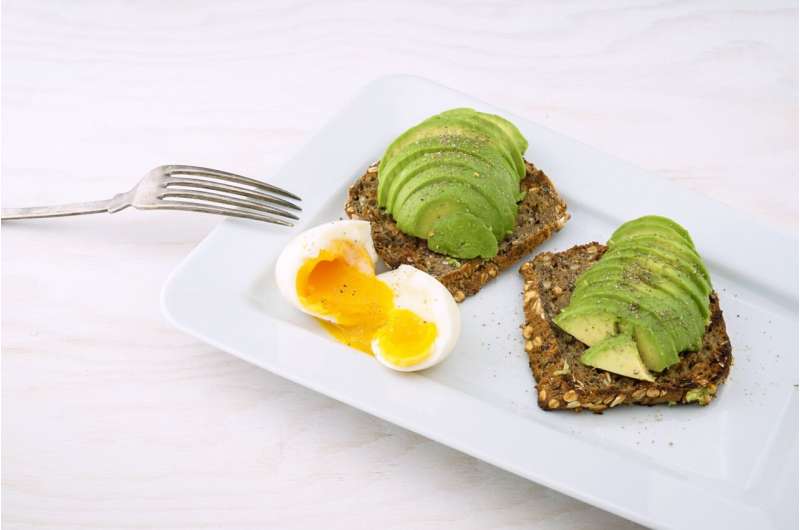
You can squash it onto your toast with a drizzle of olive oil, add it to smoothies and cakes or feed it straight to your baby. Avocado is one of the most unusual food items—a pear-shaped green fruit with a large pit and dark leathery skin, which botanists define as “a berry with a single seed” (some also call it an alligator pear or a butter fruit). It has a mild taste and is chock full of vitamins, minerals, healthy unsaturated fats and fiber. A superfruit? Most definitely.
University of Wollongong’s (UOW) Associate Professor Yasmine Probst has been researching the link between diet and health outcomes for years. In one of her recent scientific papers, published in the prestigious British Journal of Nutrition, she finds a correlation between avocado consumption and lower body weight and a smaller waist circumference.
“There hasn’t been much research into the ways avocado consumption influences people’s health, so we’ve been very excited to find out that it is super-beneficial.”
“Firstly, we were able to show that both lower body weight and a lower waist circumference have been positively associated with increased avocado intake. Then, we noticed that greater consumption of avocados was also associated with significantly lower consumption of discretionary (junk) foods,” Professor Probst explained.
Although technically a fruit, nutritionally, avocados are considered a source of fat. Their health-promoting qualities are primarily due to the high levels of unsaturated fats. These fats help to lower undesirable LDL cholesterol when eaten in place of saturated fat. So not only do avocados help promote weight loss, but they also significantly improve cardiovascular health, possibly contributing to longer lives.
Avocados are also low in carbs but high in fiber, so they keep people satiated longer than any other vegetable or fruit. About half an avocado contains around 160 calories and plenty of folate, vitamin K, vitamin C, potassium and vitamin E, which can help to reduce blood pressure, maintain healthy skin and eyes and boost immunity. Interestingly, most of the fat in avocados is a naturally good fat, with 5 grams of monounsaturated fat per serving (one-third of a medium avocado). When eaten alongside other foods, avocados act as a nutrient booster and help the body absorb the fat-soluble nutrients found in those foods.
Dr. Nikki A Ford, senior director of nutrition from the U.S. organization Hass Avocado Board (HAB), has supported the UOW’s research on healthy living.
“We know that eating healthy meals and regular physical activity are key to better health. Yet sometimes, change can be hard, so even small shifts can translate to big benefits. For example, you can reduce total calories in a recipe by substituting avocado for a higher-calorie ingredient like spreads.”
Yet, despite smashed avo toast dubbed the most popular Australian breakfast of choice, Professor Probst discovered that only 16 percent of Australians eat avocados regularly.
“The low levels of consumption could be attributed to the fact that avocado has fallen into a more expensive category of food items, particularly in the fruit and veg market,” Professor Probst said.
Source: Read Full Article